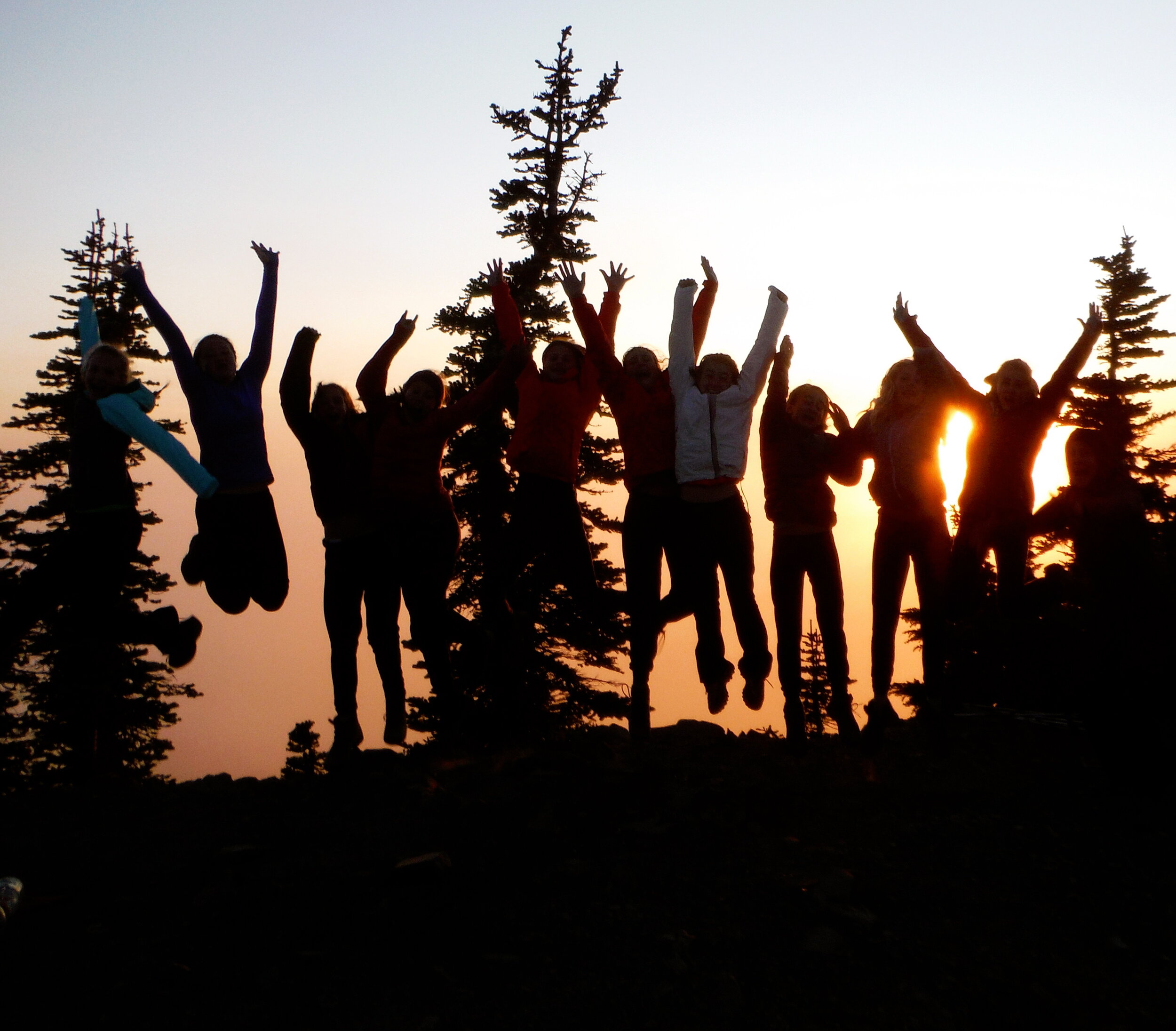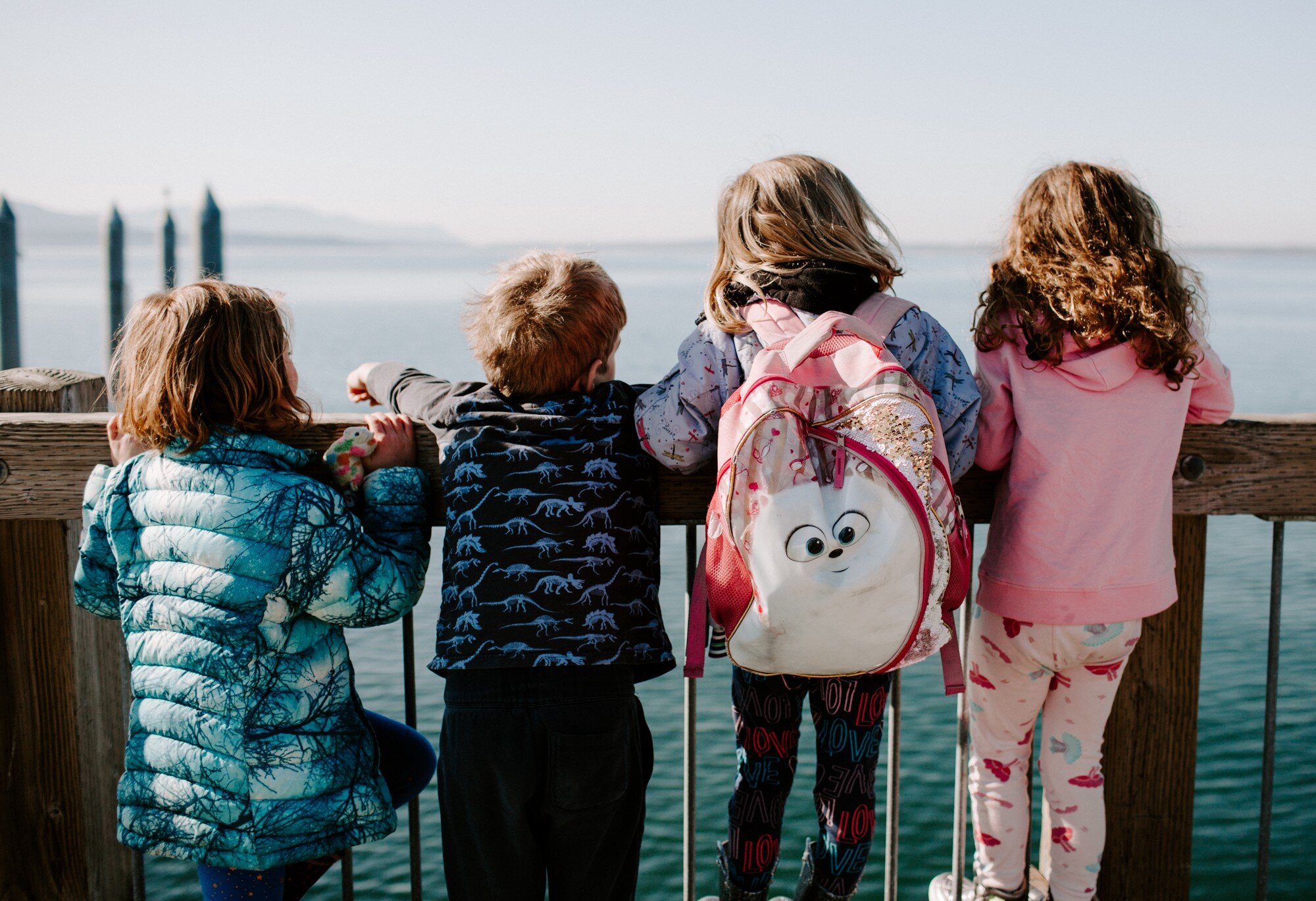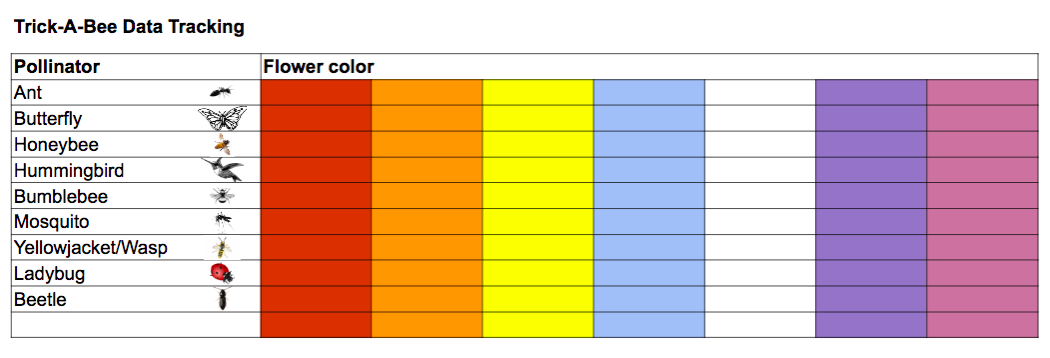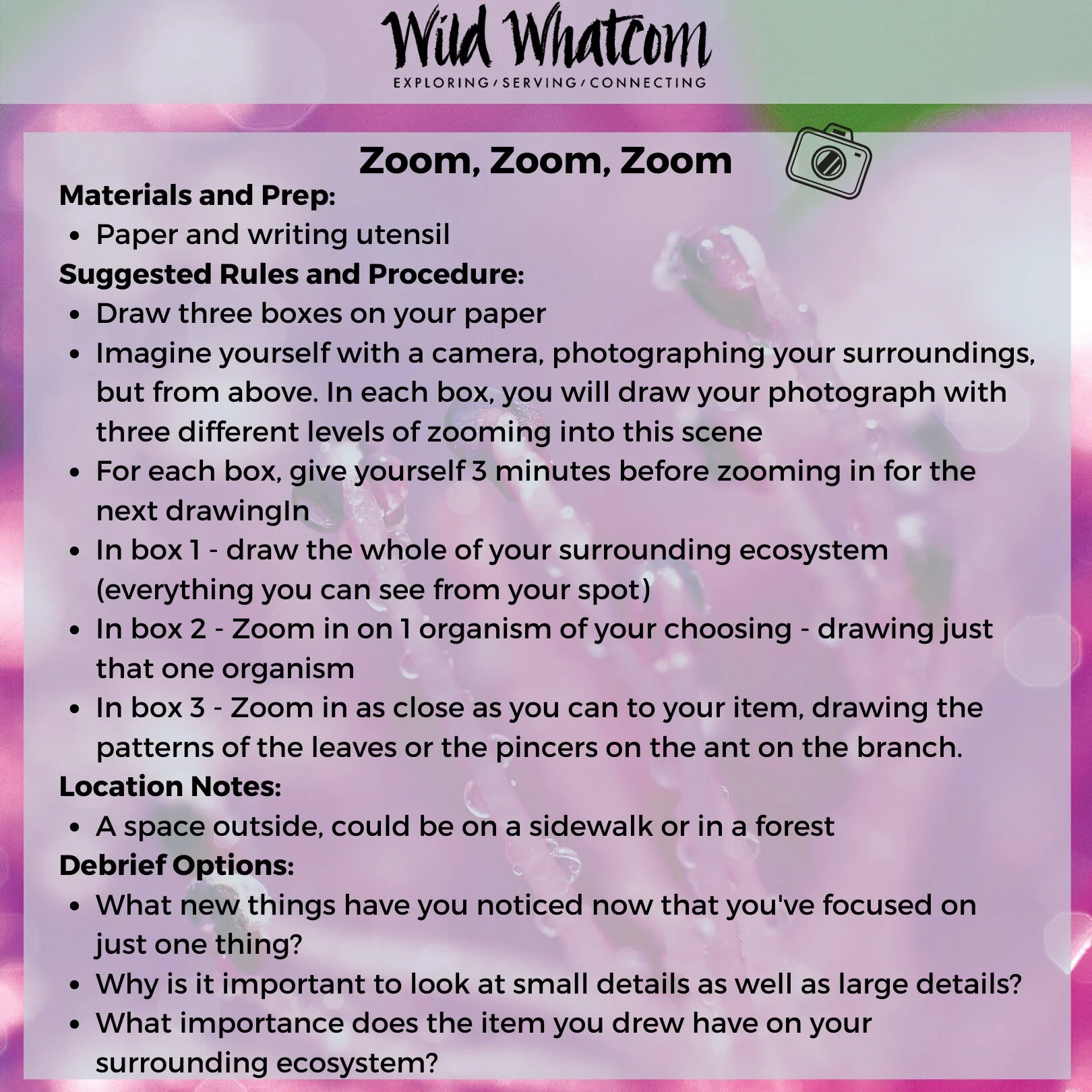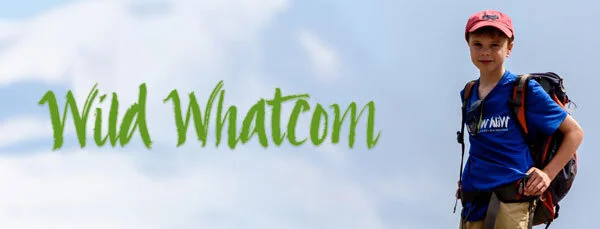Check out what we’ve got going on in September.
Fall 2020 Wild Whatcom Programs
Check out what we’re offering this fall.
Wild Connections - August
Check out what we’ve got going on in August.
Job Opening! Explorers Club Mentor
Wild Whatcom is hiring!
Please see full job descriptions and other application instructions on our Employment page.
Wild Whatcom is actively committed to social equity and justice and encourages candidates of all racial and gender identities, cultural and economic backgrounds, and of any sexual orientation to apply. Wild Whatcom is an Equal Opportunity Employer and does not discriminate on the basis of race, color, national origin, sex, religion, age, disability, sexual orientation, veteran status, or marital status in employment or the provision of services.
Join our team today!
Wild Connections - July
Wild Connections COVID-19 Issue - July 2020
Check out what we’ve got going on in July.
Opening Doors to Outdoor Learning
Local Outdoor Educators Come Together to Support Safe, Outdoor Child Care and Learning
Wild Whatcom is proud to be working with a coalition in Whatcom County helping the community re-envision learning, child care, and peer-to-peer connection. The Whatcom Coalition for Environmental Education (WCEE), comprised of more than a dozen area nonprofits, businesses, agencies, and tribal institutions, meets regularly to identify areas for increased collaboration and coordination among their organizations and with schools. As an active community of professionals, WCEE focuses on expanding and deepening access to high-quality, culturally responsive environmental education for every child across Whatcom County. With the emergence of COVID-19, the Coalition is now focused on integrating learning outdoors as a tool for equitable and safe school reopening.
We are starting to understand how the outdoors may be our best bet for offering child care, schooling, and other enrichment programs (art, dance, exercise and recreation) that are safer for our children and community. Or, in other words, how now might be a time for outdoor education to thrive:
We are learning more about how it is safer to gather outdoors. Open, moving air makes it harder for vapor droplets contaminated with COVID-19 viruses to pass from person to person. In a May 2020 article in The Hill, Roger Shapiro, a professor at Harvard University's T.H. Chan School of Public Health stated, “[COVID-19] definitely spreads more indoors than outdoors. The virus droplets disperse so rapidly in the wind that they become a nonfactor if you're not really very close to someone outdoors—let’s say within six feet.” Linsey Marr, an engineering professor and aerosol scientist at Virginia Tech, was quoted in a recent New York Times article saying, “I think outdoors is so much better than indoors in almost all cases. There’s so much dilution that happens outdoors. As long as you’re staying at least six feet apart, I think the risk is very low.” Preliminary case studies are beginning to confirm that COVID-19 transmission is far greater in indoor environments than gatherings outdoors.(1,2)
Photo credit: New York Times,What We Know About Your Chances of Catching the Virus Outdoors
Education and health officials are recommending more time outside. Guidance for fall 2020 learning from the Washington Office of Superintendent of Public Instruction encourages public instructors to provide more space between students, including keeping students outside more. This guidance follows the advice of local and global health officials who are preferring outdoor gatherings as much as possible. The American Academy of Pediatrics also recommends pre-K and elementary schools "utilize outdoor spaces when possible" as "higher-priority strategies" (along with wearing face coverings and spreading out desks). They also make a general recommendation to utilize outdoor spaces for secondary schools and school meals.
Whatcom County benefits from local outdoor experts and an abundance of natural spaces. We are all familiar with the many beautiful parks in this area, many of us drawn to this region for that very reason. We also have a wealth of knowledge in the community as demonstrated by the WCEE membership and groups such as the North Cascades Audubon Society and the Northwest Mushroomers Association. National resources such as the eeEducation Guidance for Reopening Schools from the North American Association for Environmental Education can also advise how to equitably incorporate more learning outdoors.
Whatcom County has no shortage of beautiful outdoor spaces.
Spending time outdoors also has intrinsic, scientifically proven mental and physical health benefits. Time in nature is not only associated with higher levels of physical activity, but is also linked with evidence-based health benefits including reduced stress, improved mental health, increased prosocial behavior and connectedness, greater happiness, decreased obesity and diabetes, and improved cognitive and motor development, among others. (3,4) Now, more than ever, getting outside may be a vital addition to our daily regimen.
Photo credit: Klipsun: Waking up Whatcom Youth
Our local school districts mobilized quickly in the spring focusing first on child care and free meals to ensure students were sheltered and nourished. Shortly thereafter, local teachers worked tirelessly to bring education into the households of every child in the district, enabling families to connect with district-issued technology and tech support and setting up wireless connections. However, despite the commendable efforts by our education leaders, the county (and world) is learning more about how online learning only increases existing inequalities as some students may not have the time, space, or support to utilize technology in the home.
The outdoor education field, which helps to augment in-classroom learning, has also been hit hard by the pandemic, unable to support students during this time. Preliminary research from a May 2020 survey on the impacts to the industry from the Lawrence Hall of Science at the University of California, Berkeley estimates that by December 2020 (5):
Some 11 million kids who would have been served by 1,000 organizations will have missed environmental and outdoor science learning opportunities. About 60% of them are from communities of color or low-income communities.
It is highly likely that 30% of these organizations will not reopen.
Over one-third of the outdoor education field - up to 65% - will likely have disappeared, eroding a key component of the nation's education infrastructure
For many outdoors-focused organizations, including ours, in-person programs have ceased since mid-March in line with public school closures, and residential facilities are now forced to revise their business model as the pandemic may continue to prevent large, indoor gatherings for months.
During this unprecedented time, there is also potential for an unprecedented collaboration across organizations and schools to support youth in equitable and safe learning. Keren Bitan and Ben Greené, who are co-leading WCEE as a program of the Whatcom Community Foundation, share “as the pandemic has forced so many organizations to rethink and adapt, it is incredibly inspiring to see these leaders setting a powerful example by working together for the benefit of every young person, creating new models of safe, equitable and inclusive learning outside.” A strengthened partnership between schools and outdoor educators may both reduce the COVID-19-related risks of in-person instruction and peer-to-peer connection and save an invaluable industry in the community.
Our Executive Director welcomes the collaborative support that WCEE brings and shares her hopes for our future:
“Though this time has been difficult for our organization, I am incredibly hopeful for the opportunities that lie ahead.
Integrating outdoor learning into our educational institutions is just one of the ways in which we can leverage this moment to begin building a more just, sustainable, and healthy society together.”
— Licia Sahagun, Wild Whatcom Executive Director
We are currently running an adapted version of our summer programming in July with reduced group sizes, masks, social distancing, and other safety measures. We are also piloting virtual programs similarly to others in town (including the City of Bellingham, Common Threads, Garden of the Salish Sea Curriculum, Nooksack Salmon Enhancement Association, North Cascades Institute, RE Sources for Sustainable Communities, Whatcom Conservation District) hoping to encourage participants and families to stay connected and get outside.
If you would like to learn more about the coalition, visit their website at www.whatcomenvironmentaleducation.com. And consider a donation to the coalition or Wild Whatcom today to support this vital work.
——————
RESOURCES
Hiroshi Nishiura, Hitoshi Oshitani, Tetsuro Kobayashi, Tomoya Saito, Tomimasa Sunagawa, Tamano Matsui, Takaji Wakita, MHLW COVID-19 Response Team, Motoi Suzuki. 2020. Closed environments facilitate secondary transmission of coronavirus disease 2019 (COVID-19).doi: https://doi.org/10.1101/2020.02.28.20029272
Hua Qian, Te Miao, Li LIU, Xiaohong Zheng, Danting Luo, Yuguo Li. 2020. Indoor transmission of SARS COV2.https://doi.org/10.1101/2020.04.04.20053058
Bratman, Hamilton, Kahn, Daily, Gross (2015). Nature experience reduces rumination and subgenual prefrontal cortex activation. Proceedings of the National Academy of Sciences Jul 2015, 112 (28), 8567-8572. doi:10.1073/pnas.1510459112
Frumkin, et. al. (2017). Nature Contact and Human Health: A Research Agenda. Environmental Health Perspectives, Jul 2017, 125 (7). Doi: https://doi.org/10.1289/EHP1663
COVID-19 pandemic could slash environmental, outdoor science education programs in half nationwide. Lawrence Hall of Science at University of California Berkeley. June 10, 2020. Available at: https://www.lawrencehallofscience.org/about/newsroom/press_releases/environmental-outdoors-edu-threatened-covid
Nature Activity - High Tide, Low Tide
Ever wanted to have control of the tides like the moon? This game of High Tide, Low Tide is a fun energy burst that also gives you some insight into how the moon controls the level of the tides!
Make a video of you playing and share with us!
Nature Activity - What is erosion?
Wild Connections - June
Check out what we’ve got going on in June.
Nature Activity - Trick-A-Bee
The name is misleading because this is more of an experiment than a game to play on bees! The question is, do pollinators visit specific flowers based on color? To conduct this experiment, draw an outline of a simple flower on a piece of paper or a paper plate and color it in using only one solid color. Make flowers in different colors: red, orange, yellow, white, blue, purple, and pink. Set out the flowers in a place where you can see which insects come to visit them. Get comfy, hold as still as you can (pretend you’re a tree), and watch your flowers carefully for an hour. To track which pollinator comes to which color of flower, see our data sheet example in the photos. You can make your own on a piece of paper and crayons, just draw a grid and color in each square to match the colors of your flowers. Make tally marks on the corresponding colored boxes to track which insects visit which flower. For example, say you see a honeybee fly to the purple flower first. You would put one tally mark in the purple box. Use our example if you want to specify which pollinator came for lunch. Report back to us what you discover! Which color flower did Bumblebees visit first? Honeybees? Mosquitos? Tally up and let us know!
Nature Activity - Zoom Zoom Zoom
Sometimes it's best to focus on what is right around us and see the biodiversity in a small area. Play this Zoom, Zoom, Zoom activity with us to get ready for International Day for Biological Diversity on May 22.
Nature Activity - Nature Bathing
Ever heard of Nature Bathing? This is usually done out in a natural environment, but when you're encouraged to stay inside and its raining out anyway, open up a window, close your eyes, and spend some time imagining yourself as a raindrop traveling from above to eventually land on the ground. Where does your raindrop go?
Nature Activity - Cloud Watching
Give BIG and #GivingTuesdayNow
Join a nationwide effort to support non-profits! May 5th and 6th mark two days of state and nationwide giving to support non-profits.
Today is the 10th anniversary of GiveBIG Washington, a statewide fundraising campaign led by 501 Commons. This year, GiveBIG is teaming up with #GivingTuesday, a nationwide event that normally happens each year in December.
However, due to the detrimental effects COVID-19 has had on non-profits around the country, the Giving Tuesday team decided to launch #GivingTuesdayNow, today on Tuesday, May 5th. These two giving efforts provide an opportunity for people around the world to stand together in unity—to use their individual power of generosity to remain connected, support vital organizations in their communities, and begin to heal together. If you would like to support us on these days of giving, you can do so directly through our website or on our GiveBIG page.
For those considering giving, you should also know that the CARES Act (the stimulus bill) that passed a few weeks ago, also included incentives for giving. The bill makes a new charitable deduction available for up to $300 per taxpayer ($600 for a married couple) if you take the standard deduction when filing your taxes. In other words, you can give and save at the same time!
Thank you in advance for your support of Wild Whatcom.
Wild Connections - May
Check out what we’ve got going on in May.
Nature Activity - Make a Like-A-Scope
We are getting a lot of practice in shifting our perspectives right now. Here's a simple craft that illustrates one way to explore nature using a more specific point of view.
Looking at the big picture can feel overwhelming, like when you're looking at a whole forest and trying to pick out individual trees. We find it very satisfying to simplify the landscape, pick one thing to focus on, and hone in on it. In this case, we're taking a close up look at lichens to see the incredible structures, colors, and the beauty of nature as it is.
We call this craft a "Like-o-scope" because we like looking through it, and what we see through it we like (including you!). Also, it's a handy tool at narrowing your field of view so it's easier to focus and really SEE lichens! We love lichens!
Diane Garmo's Land Donation - Whatcom Land Trust
Thanks to our friends at Whatcom Land Trust for posting this on their Facebook page:
Our Resilient Nature, both as a people and Nature herself, adapts to unexpected changes, including this virus. That resilience is due in part to the selflessness of individuals who think of the greater good and also in part due to this LAND WE LOVE that feeds us, filters our drinking water and the air we breathe.
Diane Garmo's land donation and coordination with Wild Whatcom to educate future generations of leaders and land stewards will continue this legacy of resilience, through this unusual time in history and beyond as protectors of the land.
Take a look at just one example of how land protected through Whatcom Land Trust will nourish and ensure the resilience of our shared future.
Wild Connections - Earth Day 2020
Happy 50th Anniversary Earth Day!
Read more about how we are celebrating our planet today.
Nature Activity - Seed Pick-up Game
We're talking all about birds - and beaks! Do you have a bird feeder in your yard? Play this fun seed pick-up game to see what it would be like to eat like a bird. You can play this with the whole family - and even friends over video chat.
Nature Activity - Leaf Identification and Rubbing
Let's play! Leaf ID and then maybe do some leaf rubbings while we're all hanging around home. What are some of your favorite leaves or leaf rubbings?




